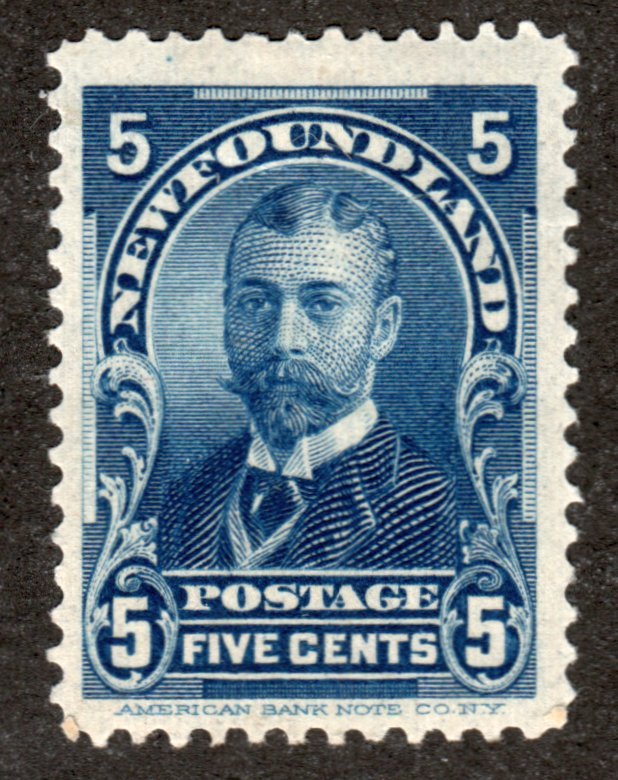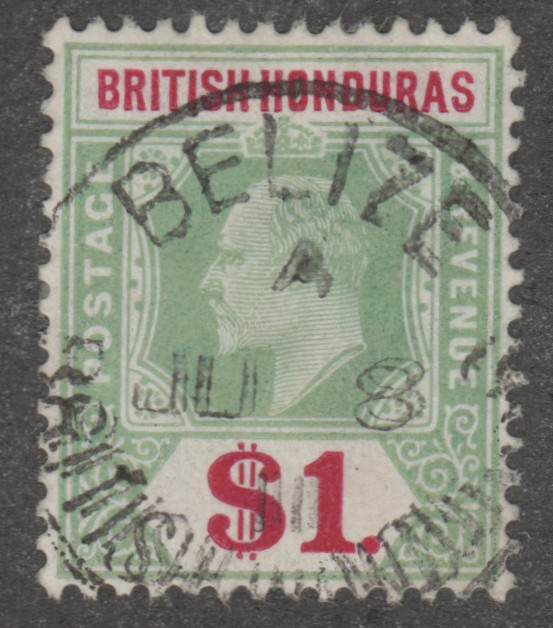
Discussion - Member to Member Sales - Research Center

Discussion - Member to Member Sales - Research Center

Michael

Login to Like
this post
For US stamps
Professional Stamp Experts
http://www.psestamp.com
The Philatelic Foundation
http://www.philatelicfoundation.org
The American Philatelic Expertizing Service (APEX)
https://stamps.org/Stamp-Authentication
For other countries there may be more specialized experts.
Cert costs typical are based upon catalog value (which drives me nuts). If a stamp is submitted for a high catalog value stamp but it turns out to be fake, they charge a flat rate (usually around $30-$35).
Before sending in for a cert, it is often best to submit a good quality scanned images on one of the forums like this one. Knowledgeable folks can take a look and advise if the stamp is legitimate enough to spend the money on a cert.
Don

3 Members
like this post.
Login to Like.
Mystic and Kenmore, among most other dealers are not recognized professional stamp experts.
Do as Don suggested and post an image of the stamp in question. People will be happy to help you with information from which you can decide whether to submit for a certificate or not.

3 Members
like this post.
Login to Like.
Yes, agree with Don. Given the cost of the cert., it become not cost effective to certify stamps below a certain CV (say maybe $100?). Now we have stamp forums where there's a lot of experts willing to help out for free 

1 Member
likes this post.
Login to Like.
The thing that I cannot understand is when I see very common stamps, like 3 cent commemoratives, graded with certificates. Who the heck does that?

1 Member
likes this post.
Login to Like.
hope this all made sense, Michael
get certificates for stamps that you think MIGHT be rare and valuable, but do as much homework as possible in advance to weed out fakes, forgeries, and just common stuff. In my 30+ years collecting, I have had only one stamp expertized.
David

2 Members
like this post.
Login to Like.
Ben Franklin
The thing that I cannot understand is when I see very common stamps, like 3 cent commemoratives, graded with certificates. Who the heck does that?
Because "certifiers" like
Professional Stamp Experts
http://www.psestamp.com
take ordinary modern stamps, give them a 100 rating, put them in a plastic sleeve with a fancy registration and a contrived fictitious value way more than the CV
The latest fad is to take a perfectly good sheet of inexpensive stamps cute off part of the adjoining stamps and call them "jumbos" so they can charge exorbitant amounts

A typical jumbo or is it a dumbo
It seems to be working, the one above had a catalog value of $25 and got $450 in an auction from what I thought was a reputable auction house
If you look at some of their "products", it seems the only and main criteria is centering.
Post the image here and if the value is there check out the fees and use a company that has a certfication guarantee. Also if the stamp is non US better to have it expertized by a country specific body like BPP (Germany) COMEX (Spain) Greene (Canada) etc - many will give you a low cost evaluation before a costly certification.
Some philatelic online societies give free evaluations.
Don't use stamp dealers like Kenmore or Mystic

2 Members
like this post.
Login to Like.
Thanks for all The great Information. Guess I have to just take my time and learn. I currently am just sorting, Identifying, cataloging and preserving. I will focus on that first and post anything I am having trouble with. Thanks again.
Michael

Login to Like
this post
Do not confuse ‘certification’ with ‘grading’; two completely different things.
Certifications are opinions and are used as a second opinion. The experts who cert a stamp are generally right but they do indeed make some mistakes at times. Additionally, certifications can ‘age’ poorly; it other words as technology and the knowledge based expand each years sometime this invalidates older certifications. A good cert will often go a long way when selling online since it gives buyers a bit more comfort that the stamp is identified and described correctly.
Graded stamps are highly controversial but are often attractive to investors (as opposed to collectors) since they are typically slabbed (encased in plastic) and command higher prices. But because grading stamp encourages the splitting up of large multiples blocks, many postal historians and those who care about our hobby hate them and feel they are responsible for destroying important, historically significant material. There are some folks who feel so strongly about this issue of graded stamps that they will not support any dealer or auction house that sells graded stamps.
Grading is also a difficult topic because there is no real standard across the hobby on what the grading terms or numeric values mean. What one catalog defines as XF another might define as Fine. Then add in the fact that there is a major software application which ‘grades’ stamp but ONLY on the centering of the stamp, the software ignores things like faults and gum condition. If anyone is getting into graded stamp they really should do a lot of discovery and be careful. A common stamp typically worth 10 cents can often be seen listed from $50 or more.
Don

2 Members
like this post.
Login to Like.

How do we go about getting stamps appraised and certified? I have heard of companies such as Mystic and Kenmore but imagine they charge big bucks for their time. I also wonder if my stamps would be worth it? I have some that I have seen certified that have a rather high value. I also Know that there are so many factors to that value...meaning mine could be worthless...thanks for the help.
Michael

Login to Like
this post

re: Certification
For US stamps
Professional Stamp Experts
http://www.psestamp.com
The Philatelic Foundation
http://www.philatelicfoundation.org
The American Philatelic Expertizing Service (APEX)
https://stamps.org/Stamp-Authentication
For other countries there may be more specialized experts.
Cert costs typical are based upon catalog value (which drives me nuts). If a stamp is submitted for a high catalog value stamp but it turns out to be fake, they charge a flat rate (usually around $30-$35).
Before sending in for a cert, it is often best to submit a good quality scanned images on one of the forums like this one. Knowledgeable folks can take a look and advise if the stamp is legitimate enough to spend the money on a cert.
Don

3 Members
like this post.
Login to Like.

re: Certification
Mystic and Kenmore, among most other dealers are not recognized professional stamp experts.
Do as Don suggested and post an image of the stamp in question. People will be happy to help you with information from which you can decide whether to submit for a certificate or not.

3 Members
like this post.
Login to Like.

re: Certification
Yes, agree with Don. Given the cost of the cert., it become not cost effective to certify stamps below a certain CV (say maybe $100?). Now we have stamp forums where there's a lot of experts willing to help out for free 

1 Member
likes this post.
Login to Like.

re: Certification
The thing that I cannot understand is when I see very common stamps, like 3 cent commemoratives, graded with certificates. Who the heck does that?

1 Member
likes this post.
Login to Like.
Auctions
re: Certification
hope this all made sense, Michael
get certificates for stamps that you think MIGHT be rare and valuable, but do as much homework as possible in advance to weed out fakes, forgeries, and just common stuff. In my 30+ years collecting, I have had only one stamp expertized.
David

2 Members
like this post.
Login to Like.
02:38:03pm
re: Certification
Ben Franklin
The thing that I cannot understand is when I see very common stamps, like 3 cent commemoratives, graded with certificates. Who the heck does that?
Because "certifiers" like
Professional Stamp Experts
http://www.psestamp.com
take ordinary modern stamps, give them a 100 rating, put them in a plastic sleeve with a fancy registration and a contrived fictitious value way more than the CV
The latest fad is to take a perfectly good sheet of inexpensive stamps cute off part of the adjoining stamps and call them "jumbos" so they can charge exorbitant amounts

A typical jumbo or is it a dumbo
It seems to be working, the one above had a catalog value of $25 and got $450 in an auction from what I thought was a reputable auction house
If you look at some of their "products", it seems the only and main criteria is centering.
Post the image here and if the value is there check out the fees and use a company that has a certfication guarantee. Also if the stamp is non US better to have it expertized by a country specific body like BPP (Germany) COMEX (Spain) Greene (Canada) etc - many will give you a low cost evaluation before a costly certification.
Some philatelic online societies give free evaluations.
Don't use stamp dealers like Kenmore or Mystic

2 Members
like this post.
Login to Like.

re: Certification
Thanks for all The great Information. Guess I have to just take my time and learn. I currently am just sorting, Identifying, cataloging and preserving. I will focus on that first and post anything I am having trouble with. Thanks again.
Michael

Login to Like
this post

re: Certification
Do not confuse ‘certification’ with ‘grading’; two completely different things.
Certifications are opinions and are used as a second opinion. The experts who cert a stamp are generally right but they do indeed make some mistakes at times. Additionally, certifications can ‘age’ poorly; it other words as technology and the knowledge based expand each years sometime this invalidates older certifications. A good cert will often go a long way when selling online since it gives buyers a bit more comfort that the stamp is identified and described correctly.
Graded stamps are highly controversial but are often attractive to investors (as opposed to collectors) since they are typically slabbed (encased in plastic) and command higher prices. But because grading stamp encourages the splitting up of large multiples blocks, many postal historians and those who care about our hobby hate them and feel they are responsible for destroying important, historically significant material. There are some folks who feel so strongly about this issue of graded stamps that they will not support any dealer or auction house that sells graded stamps.
Grading is also a difficult topic because there is no real standard across the hobby on what the grading terms or numeric values mean. What one catalog defines as XF another might define as Fine. Then add in the fact that there is a major software application which ‘grades’ stamp but ONLY on the centering of the stamp, the software ignores things like faults and gum condition. If anyone is getting into graded stamp they really should do a lot of discovery and be careful. A common stamp typically worth 10 cents can often be seen listed from $50 or more.
Don

2 Members
like this post.
Login to Like.

